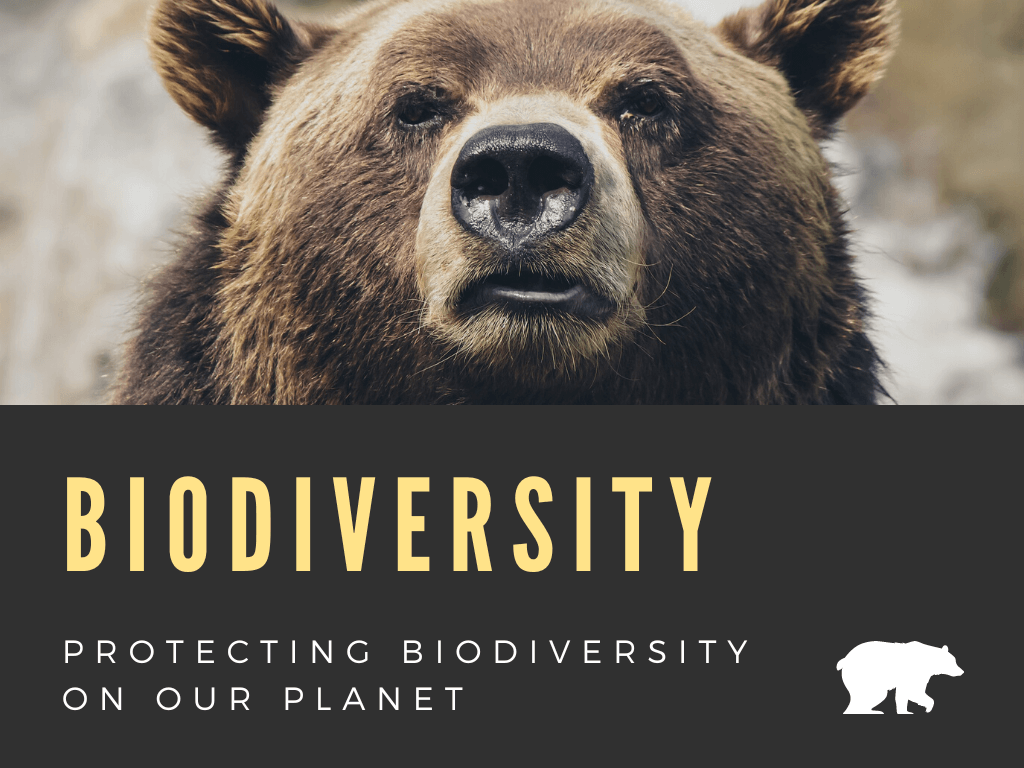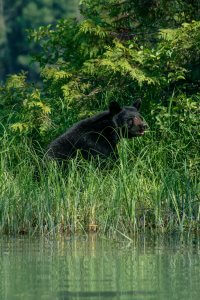It refers to the variety of life forms on earth, including the number of species, the genes they contain, and the ecosystems they form. Biodiversity is crucial for the survival of both humans and the planet, as it provides essential services such as food, oxygen production, climate regulation, and nutrient cycling. The loss of biodiversity, often as a result of human activities such as habitat destruction, pollution, and over-exploitation, is a major global environmental concern.
Types of Biodiversity:

There are three main types of biodiversity:
- Genetic diversity: refers to the variation in the genetic makeup of individuals within a species, as well as the variation between species.
- Species diversity: refers to the variety of different species within a particular ecosystem or on the planet as a whole.
- Ecosystem diversity: refers to the variety of different ecosystems and the biotic and abiotic components within them, such as forests, grasslands, deserts, lakes, and oceans.
Each of these types of biodiversity is important for maintaining the overall health and resilience of the planet, and the loss of any one type can have significant impacts on the others. For example, the loss of genetic diversity within a species can make it more vulnerable to disease or environmental stress, while the loss of species diversity can disrupt the balance of an ecosystem and the services it provides.
Genetic diversity:
It refers to the variation in the genetic makeup of individuals within a species, as well as the variation between species. It is the source of all biological diversity and is crucial for the survival and adaptation of species in changing environments.
For example, genetic diversity allows some individuals within a species to have traits that help them resist disease, tolerate environmental stress, or better utilize available resources. Over time, these advantageous traits can spread within the population, improving its chances of survival.
Genetic diversity also allows for the evolution of new species through the process of speciation, which occurs when populations of a species become geographically separated and over time develop differences in their genetic makeup that prevent them from interbreeding.
The loss of genetic diversity due to human activities such as habitat destruction, pollution, and over-exploitation can have significant impacts on the health and resilience of species and ecosystems, making it important to protect biodiversity at all levels.
Species diversity:
This type of diversity refers to the variety of different species within a particular ecosystem or on the planet as a whole. It is a measure of the number of different species in a given area, and can be influenced by a range of factors including climate, geology, and the interactions between species.
High species diversity is important for the overall health and resilience of ecosystems, as different species can perform unique roles and functions that support ecosystem processes, such as pollination, nutrient cycling, and pest control.
For example, an ecosystem with a high degree of species diversity is less likely to be disrupted by the loss of any one species, as other species can often compensate for the loss. Conversely, an ecosystem with low species diversity is more vulnerable to collapse if even a few key species are lost.
The loss of species diversity, often as a result of human activities such as habitat destruction, pollution, and over-exploitation, is a major global environmental concern, as it can have significant impacts on the functioning of ecosystems and the services they provide to both humans and other species.
Ecosystem diversity:
It refers to the variety of different ecosystems and the biotic and abiotic components within them, such as forests, grasslands, deserts, lakes, and oceans. It is a measure of the diversity of different types of ecosystems, as well as the species and genetic diversity within those ecosystems.
Ecosystem diversity is important for the overall health and resilience of the planet, as each ecosystem has unique characteristics and processes that support the survival and well-being of the species that inhabit it. For example, different ecosystems can provide a wide range of goods and services to humans, such as food, wood, fresh water, and recreation opportunities.
Ecosystem diversity also plays a crucial role in regulating the global climate and maintaining the planet’s biodiversity. For example, ecosystems such as forests and oceans absorb large amounts of carbon dioxide from the atmosphere, helping to regulate the Earth’s temperature and prevent climate change.

The loss of ecosystem diversity, often as a result of human activities such as habitat destruction, pollution, and climate change, is a major global environmental concern, as it can have significant impacts on the functioning of ecosystems and the services they provide. Protecting and restoring ecosystem diversity is essential for the health and well-being of both humans and the planet.



